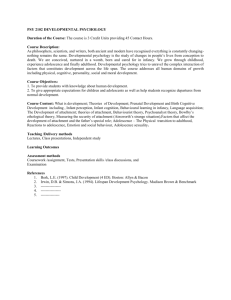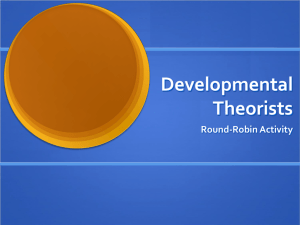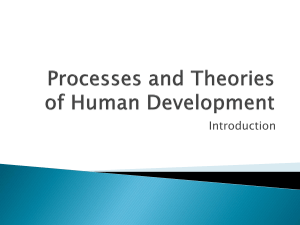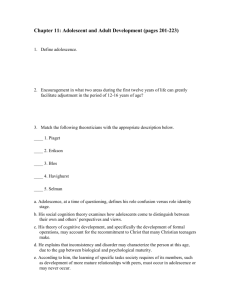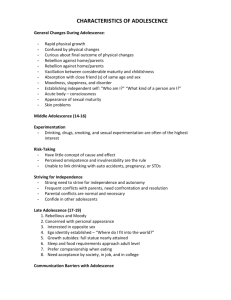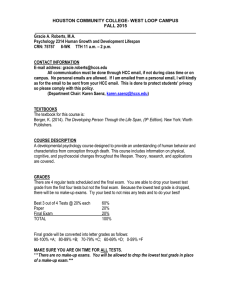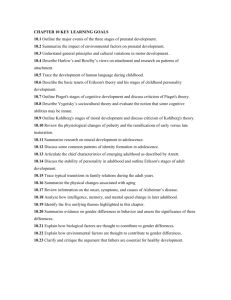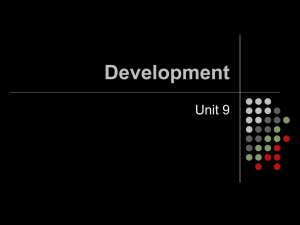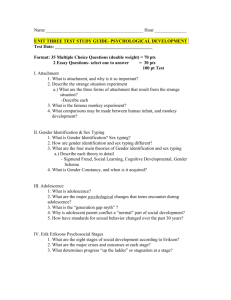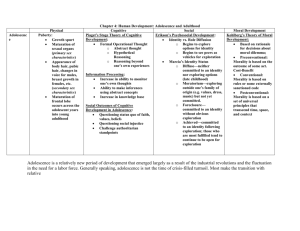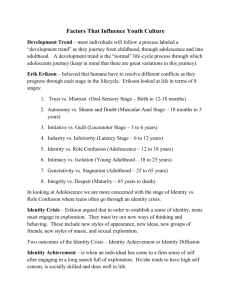Student Answer - Relationships
advertisement
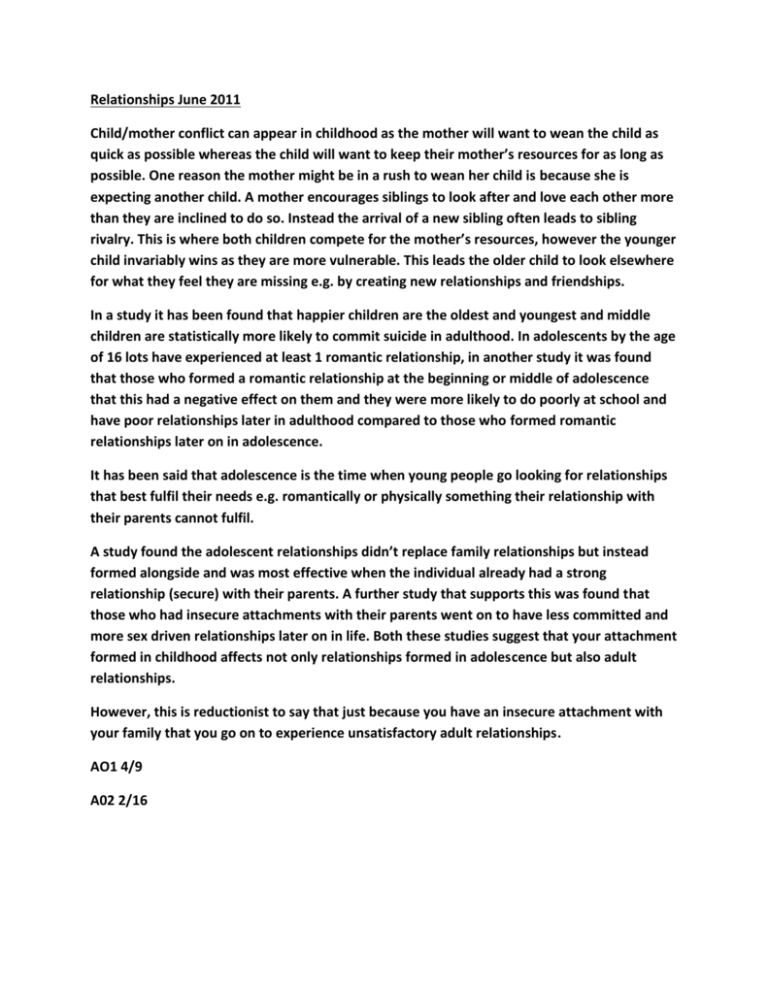
Relationships June 2011 Child/mother conflict can appear in childhood as the mother will want to wean the child as quick as possible whereas the child will want to keep their mother’s resources for as long as possible. One reason the mother might be in a rush to wean her child is because she is expecting another child. A mother encourages siblings to look after and love each other more than they are inclined to do so. Instead the arrival of a new sibling often leads to sibling rivalry. This is where both children compete for the mother’s resources, however the younger child invariably wins as they are more vulnerable. This leads the older child to look elsewhere for what they feel they are missing e.g. by creating new relationships and friendships. In a study it has been found that happier children are the oldest and youngest and middle children are statistically more likely to commit suicide in adulthood. In adolescents by the age of 16 lots have experienced at least 1 romantic relationship, in another study it was found that those who formed a romantic relationship at the beginning or middle of adolescence that this had a negative effect on them and they were more likely to do poorly at school and have poor relationships later in adulthood compared to those who formed romantic relationships later on in adolescence. It has been said that adolescence is the time when young people go looking for relationships that best fulfil their needs e.g. romantically or physically something their relationship with their parents cannot fulfil. A study found the adolescent relationships didn’t replace family relationships but instead formed alongside and was most effective when the individual already had a strong relationship (secure) with their parents. A further study that supports this was found that those who had insecure attachments with their parents went on to have less committed and more sex driven relationships later on in life. Both these studies suggest that your attachment formed in childhood affects not only relationships formed in adolescence but also adult relationships. However, this is reductionist to say that just because you have an insecure attachment with your family that you go on to experience unsatisfactory adult relationships. AO1 4/9 A02 2/16

